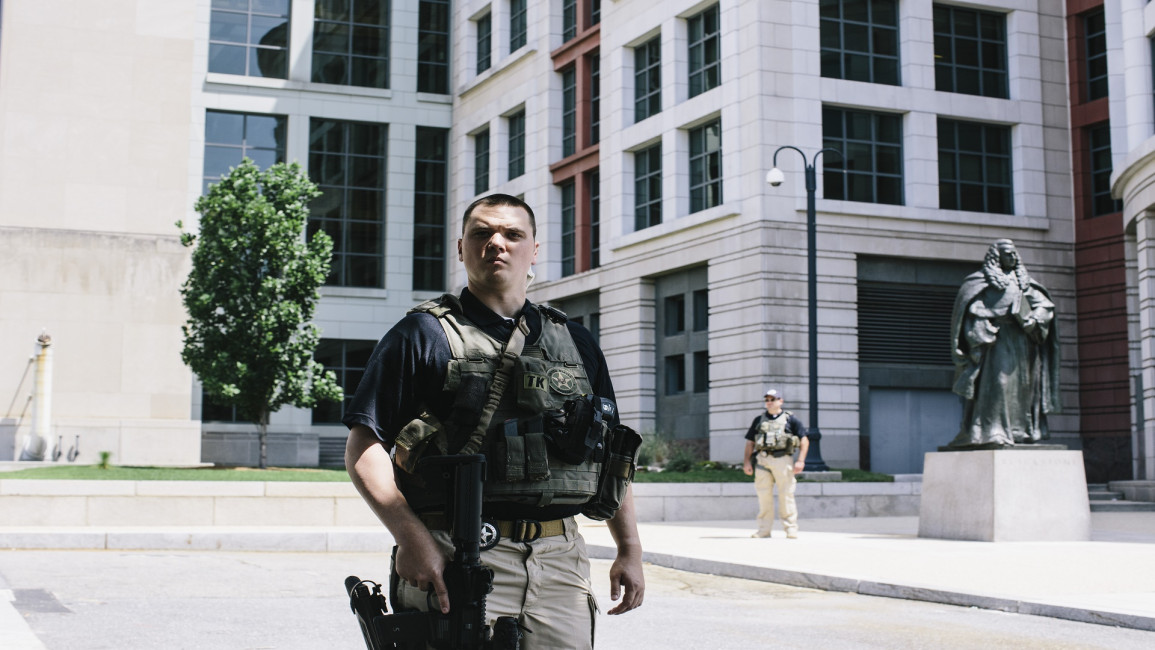US interrogation of Benghazi attack suspect 'illegal'
The lawyers of the alleged ringleader of the group that attacked the American diplomatic compound in Benghazi, Libya, on 11 September 2012, killing four Americans including US ambassador J. Christopher Stevens, have described his interrogation in international waters aboard a US Navy ship as illegal.
Ahmed Abu Khattala was captured in June 2014 by U.S. special forces in Libya and faced days of questioning by separate teams of American interrogators aboard a U.S. Navy transport ship during the 13-day trip to America, instead of being flown directly to the US to face charges.
Abu Khattala's lawyers say the ship made its way to the US as slowly as possible to allow maximum time for interrogation, which goes against the government's obligation to promptly place a suspect before a judge.
The Obama administration has turned to questioning in international waters as an alternative to past practices in which suspects were sent to the US jail at Guantanamo Bay, Cuba, or secret CIA prisons.
Abu Khattala's lawyers submitted court filings this month contending that the government held him "captive on a military ship - without the protection of and in spite of constitutional guarantees - for the explicit purpose of illegally interrogating him for almost two weeks."
Federal prosecutors have yet to respond.
A similar approach was used by theUS in the case of Ahmed Abdulkadir Warsame, a Somali citizen accused of helping support and train al-Qaeda-linked militants. He pleaded guilty soon after he arrived in the US via Navy ship.
It also came into play in the case of Abu Anas al-Libi, once one of the FBI's most wanted terror suspects. He was arrested in Libya in 2013 and brought to New York to face charges in the 1998 bombings of American embassies in Kenya and Tanzania.
Al-Libi's lawyers fought to keep his statements out of the case, however he died before trial.


![President Pezeshkian has denounced Israel's attacks on Lebanon [Getty]](/sites/default/files/styles/image_684x385/public/2173482924.jpeg?h=a5f2f23a&itok=q3evVtko)



 Follow the Middle East's top stories in English at The New Arab on Google News
Follow the Middle East's top stories in English at The New Arab on Google News


